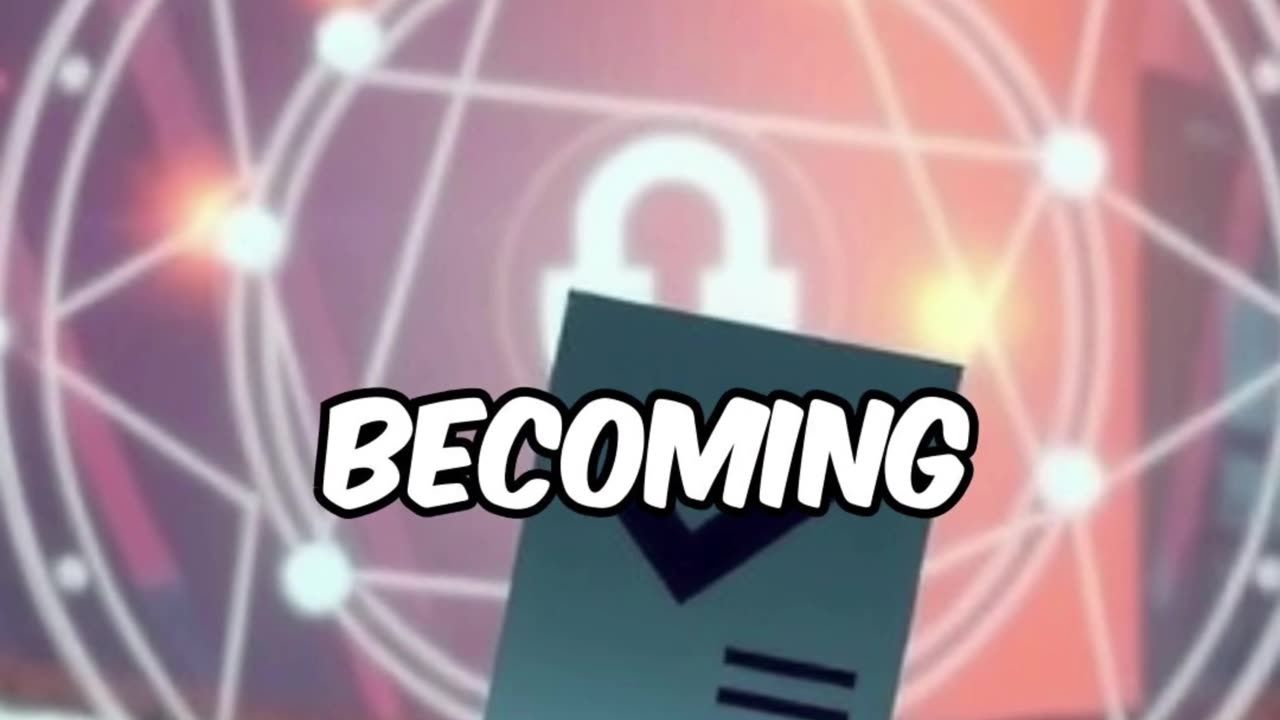Premium Only Content

Blockchain Explained: More Than Just Cryptocurrency #Blockchain #Crypto #Web3
Blockchain technology, often synonymous with cryptocurrencies like Bitcoin, extends far beyond digital currencies. At its core, blockchain is a decentralized ledger that securely records transactions across a network of computers, ensuring transparency and immutability. This foundational structure has paved the way for diverse applications across various industries. Supply Chain Management In supply chain management, blockchain enhances transparency and traceability. By recording each step of a product’s journey—from raw materials to the consumer—on an immutable ledger, stakeholders can verify authenticity and monitor conditions in real-time. This reduces fraud and ensures product quality. Major companies like IBM and Walmart are leveraging blockchain to improve supply chain visibility.  Healthcare Blockchain is revolutionizing healthcare by providing secure and efficient management of medical records. Patients gain control over their data, granting access to providers as needed, which enhances privacy and interoperability. Additionally, blockchain facilitates the safe transfer of patient records between healthcare professionals, ensuring data integrity and reducing errors.  Finance Beyond cryptocurrencies, blockchain is transforming the financial sector by enabling faster and more secure transactions. Smart contracts—self-executing agreements with terms directly written into code—automate processes like loan disbursements and insurance claims, reducing the need for intermediaries and lowering costs. For instance, blockchain-based insurance protocols offer decentralized platforms for various insurance products, enhancing efficiency and trust.  Voting Systems Blockchain offers a promising solution for secure and transparent voting systems. By recording votes on an immutable ledger, it ensures that each vote is counted accurately and cannot be tampered with, thereby increasing trust in electoral processes. This application has the potential to enhance democratic systems by providing a verifiable and transparent method for casting and counting votes.  Digital Identity Verification Managing digital identities securely is a growing concern. Blockchain provides a decentralized approach, allowing individuals to control their personal information and share it selectively with trusted parties. This reduces the risk of identity theft and fraud, as personal data is not stored in a central repository vulnerable to breaches. Blockchain-based identity solutions offer a reliable means of verifying identities, mitigating risks associated with data breaches and unauthorized access.  Intellectual Property Protection For creators and innovators, protecting intellectual property (IP) is crucial. Blockchain can timestamp creations and securely record IP rights, providing an immutable proof of ownership. This ensures that creators can establish the originality of their work and receive due credit and compensation. By leveraging blockchain, artists and inventors can safeguard their creations against unauthorized use or infringement.  Internet of Things (IoT) Integration The integration of blockchain with IoT devices enhances security and operational efficiency. Blockchain provides a secure method for devices to communicate and transact autonomously, ensuring data integrity and preventing unauthorized access. This combination is particularly useful in applications like smart homes and autonomous vehicles, where secure and reliable communication between devices is essential.  Conclusion Blockchain’s decentralized, transparent, and secure nature makes it a transformative technology with applications far beyond cryptocurrency. From enhancing supply chain transparency to securing personal identities, blockchain is poised to revolutionize various sectors by providing innovative solutions to longstanding challenges. #Blockchain #Technology #Innovation #SupplyChain #Healthcare #Finance #DigitalIdentity #SmartContracts #IoT #FutureTech
-
 LIVE
LIVE
Redacted News
55 minutes agoBREAKING! CHARLIE KIRK'S ASSASSIN IDENTIFIED, NATIONWIDE MANHUNT UNDERWAY | Redacted News
33,861 watching -
 1:05:30
1:05:30
vivafrei
3 hours agoCharlie Kirk Assassination FBI Updates - With FBI Whistleblower Kyle Seraphin
150K64 -
 1:59:22
1:59:22
The Quartering
2 hours agoJustice For Charlie Kirk! FBI Releases Photo Of Shooter, Mass Firings For Those Who Celebrate!
204K107 -
 36:31
36:31
Stephen Gardner
1 hour ago🔥NEW: FBI's Bombshell Reveal on Charlie Kirk Assassin!
6.53K55 -
 LIVE
LIVE
RealAmericasVoice
3 days agoHOME OF REAL NEWS
9,107 watching -
 LIVE
LIVE
The HotSeat
1 hour agoThe Manhunt Is Underway! Time Is Running OUT!
1,530 watching -
![[Ep 746] Remembering: Charlie Kirk, 9/11, Benghazi | Guests Dave Bray [USA] & Tim Cruickshank](https://1a-1791.com/video/fww1/56/s8/1/i/-/-/g/i--gz.0kob.2-small-Ep-746-Remembering-Charlie-.jpg) LIVE
LIVE
The Nunn Report - w/ Dan Nunn
1 hour ago[Ep 746] Remembering: Charlie Kirk, 9/11, Benghazi | Guests Dave Bray [USA] & Tim Cruickshank
227 watching -
 22:31
22:31
Jasmin Laine
1 hour agoMSNBC Analyst FIRED in Disgrace Over Charlie Kirk Remarks—FBI Launches $100K Manhunt
8.45K22 -
 LIVE
LIVE
The Tom Renz Show
1 hour agoRIP Charlie Kirk - Updates On America’s Turning Point
304 watching -
 31:05
31:05
Uncommon Sense In Current Times
1 hour agoCharlie Kirk Assassinated: Why Silence nor Anger is Not an Option
42